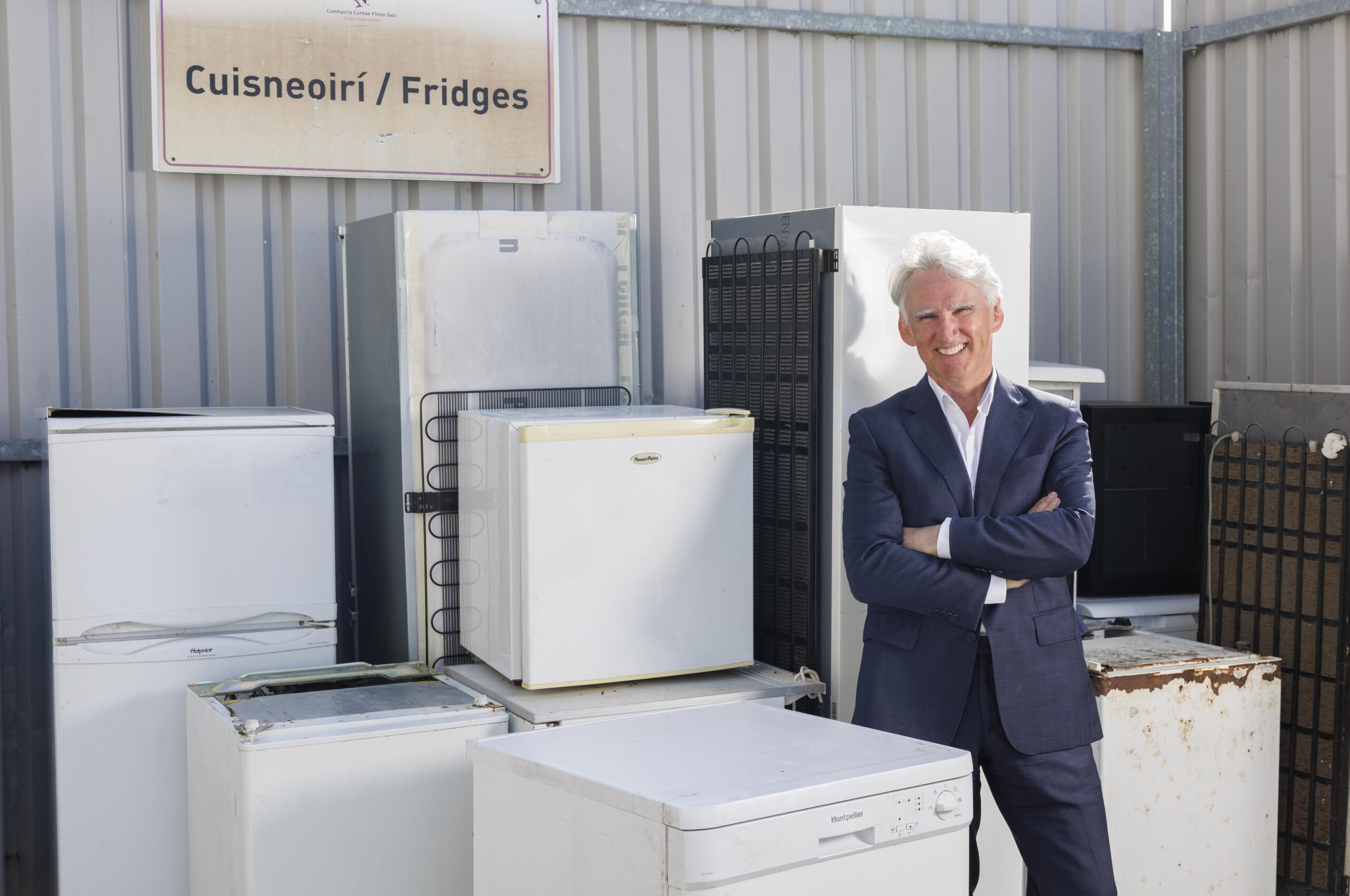250 Million Electrical Items Recycled as WEEE Ireland Celebrates 20 Years of Impact
April 15, 2025

Over 250 million old and broken electrical items have been prevented from entering landfill over the past 20 years of e-waste recycling, new data shows.
Waste Electrical and Electronic Equipment (WEEE) Ireland has facilitated the collection and recycling of more than 609,000 tonnes of electrical waste –nearly 122,000 forty-foot trucks full of e-waste.
The data was released to mark two decades of Ireland’s largest e-waste compliance scheme, which has invested in the region of €25 million annually into building and supporting Ireland’s indigenous recycling infrastructure.
However, the not-for-profit organisation warns that recycling targets set by Europe more than a decade ago mean Ireland’s efforts are not being recognised as they fail to account for the improved lifespan of technology, as well as efforts to repair and reuse products.
It is urging EU policymakers to modernise the WEEE Directive, due for major review next year, to reflect the realities of today’s electronics market.
EU member states are required to collect a minimum of 65% of the average weight of electrical and electronic equipment (EEE) placed on the market over the three preceding years.
“While WEEE Ireland’s takeback rates match the European average, our ability to meet this target is moving further out of reach every year—not because we’re failing, but because the targets ignore the real impact of circular economy efforts,” said WEEE Ireland CEO, Leo Donovan.
“The EU’s current linear weight-based targets do not consider the extended lifespans of modern electronics or the growing emphasis on repair and reuse, meaning Ireland’s true environmental progress goes unrecognised.
“So if a mobile phone is repaired or refurbished, it does not count toward Ireland’s official environmental performance, despite keeping raw materials in circulation.
“Newer appliances such as solar PV panels and heat pumps last 15 to 20 years, delaying their recycling eligibility—yet they are still counted in today’s sales-based targets.
“We need realistic targets to benchmark our systems and drive improvement. The EU must rethink how it tracks e-waste management to align with circular economy principles.”
Mr Donovan says one of the notable successes from 20 years of the scheme is WEEE Ireland’s collaboration with indigenous Irish collection, recycling and recovery operators, particularly its partners KMK Metals Recycling, Irish Lamps Recycling and Recycle IT.
Working with these, over 30,000 tonnes of steel, plastic, and glass are extracted annually, through Ireland’s certified e-waste facilities,” he said.
“Other valuable metals recovered include aluminium, copper and iron significantly reducing the need for raw material extraction.”
The 250 million electrical items recycled since 2005 consisted of 7.6 million large household appliances, 188 million mixed WEEE items, 1.8 million fridges, 5.1 million televisions and monitors, and 47.5 million lamps.
The equivalent of 725 million used AA batteries were also saved from landfill.
WEEE Ireland accounts for 78% of all national waste electrical and electronics collection activity. Its leadership in e-waste recycling is driven by a strong retail takeback network, where nearly 60% of e-waste collections come from in-store returns, with civic amenity sites, and other takeback initiative such as free public recycling events, making up the rest.
Celebrating the 20-year milestone, Minister of State at the Department of the Environment, Climate and Communications, Alan Dillon, praised WEEE Ireland’s role in steering millions of waste electronic items and batteries away from landfill.
“While capturing these valuable resources is a critical first step for sustainability and economic resilience, we need an even greater focus in Ireland on repair, reuse, and product durability to create a truly circular economy,” said Minister Dillon.
WEEE Ireland CEO Leo Donovan expressed his gratitude to consumers across Ireland for their commitment to recycling, saying: “This incredible milestone would not have been possible without the dedication of Irish households and businesses who continue to recycle their old electronics responsibly.”